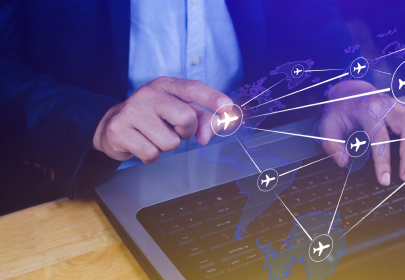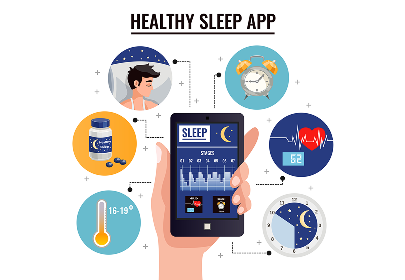Posted On April 28, 2025
How Do AI and ML Transform Healthcare Data Security
In today’s digital age, healthcare organisations handle vast amounts of sensitive patient data, making them prime targets for cyber threats. Artificial Intelligence (AI) and Machine Learning (ML) are revolutionising healthcare data security by providing advanced protection against cyber risks. Let’s explore how AI and ML enhance data security in healthcare.
The Role of AI and ML in Strengthening Healthcare Cybersecurity
Healthcare data security is critical for protecting patient information from breaches and cyberattacks. AI and ML play a crucial role in detecting threats, preventing unauthorised access, and ensuring compliance with security regulations. These technologies automate security monitoring, analyse patterns, and identify vulnerabilities before they can be exploited. By continuously learning from new threats, AI and ML provide a proactive approach to safeguarding healthcare data.
How AI Detects and Prevents Cyber Threats in Healthcare
Traditional security systems often struggle to keep up with evolving cyber threats. AI-powered solutions can analyse vast amounts of data in real time to detect unusual behaviour and identify potential security risks. By using predictive analytics, AI helps in anticipating threats and responding to them before they cause damage. Automated AI-driven security protocols enable faster response times, reducing the chances of data breaches.
Why Machine Learning Is Essential for Securing Patient Data
Machine Learning enhances security by identifying patterns in user behaviour and detecting anomalies. ML algorithms analyse access logs, network activity, and transaction records to identify suspicious activities that may indicate cyber threats. By learning from previous attacks, ML-powered systems become more effective at preventing future breaches. This continuous learning process strengthens security over time, making patient data more secure.
AI-Powered Encryption: Protecting Sensitive Healthcare Information
Data encryption is one of the most effective ways to protect sensitive healthcare information. AI enhances encryption methods by automating the process and ensuring that data remains secure at all times. AI-driven encryption systems can quickly adapt to new security threats and update protocols accordingly. This ensures that confidential patient records remain protected from hackers and unauthorised access.
How AI Helps in Real-Time Threat Detection and Response
AI-driven security systems monitor healthcare networks 24/7, enabling real-time threat detection. By analysing large datasets and identifying irregularities, AI can immediately trigger security protocols to contain threats. This rapid response helps prevent data leaks and minimises the impact of cyberattacks. AI-powered security measures also provide healthcare organisations with detailed insights into potential vulnerabilities, allowing them to strengthen their overall cybersecurity strategies.
Reducing Human Errors in Data Security with AI and ML
Human errors remain one of the most common causes of data breaches in healthcare. AI and ML help minimize these risks by automating security protocols, detecting anomalies, and ensuring compliance with industry regulations. AI-driven security systems can monitor employee activities and flag suspicious behaviour, reducing the likelihood of accidental data leaks or improper access to patient records.
The Importance of AI in Compliance and Regulatory Security Standards
The healthcare sector operates under strict regulatory frameworks such as HIPAA, GDPR, and HITECH. AI and ML streamline compliance by automating audits, monitoring data flows, and ensuring that organizations adhere to legal standards. These technologies can generate real-time reports, alert administrators about potential compliance risks, and help healthcare institutions avoid hefty fines.
How AI and ML Prevent Ransomware Attacks in Healthcare
Ransomware attacks have become a growing threat to healthcare providers. AI and ML enhance security by identifying unusual network activities, predicting potential threats, and blocking malicious software before it can infiltrate systems. Advanced algorithms continuously learn from past cyber-attacks, improving their ability to counter evolving threats.
Enhancing Data Privacy with AI-Driven Security Solutions
With the increasing use of electronic health records (EHRs) and telemedicine, maintaining patient data privacy is critical. AI-powered encryption techniques and access controls ensure that sensitive medical information is protected from unauthorized users. Additionally, ML models can detect insider threats and prevent data breaches by restricting access based on user behaviour and job roles.
The Future of Healthcare Data Security: AI’s Evolving Role
As cyber threats become more sophisticated, AI and ML will continue to evolve, providing even stronger security solutions. Future advancements will include predictive analytics for threat detection, AI-driven authentication systems, and blockchain integration to enhance data integrity. These innovations will ensure that healthcare providers can maintain trust and confidence in their digital systems.
Conclusion
AI and ML are transforming healthcare data security by providing intelligent, automated solutions to protect patient information. From real-time threat detection to AI-powered encryption, these technologies are reshaping the way healthcare organisations defend against cyber threats. As cyber risks continue to evolve, AI and ML will play an even more significant role in ensuring the safety and privacy of healthcare data. To stay ahead in data security, healthcare providers must embrace AI-driven security measures.
For more insights on digital transformation in healthcare, visit smartdatainc.com.








